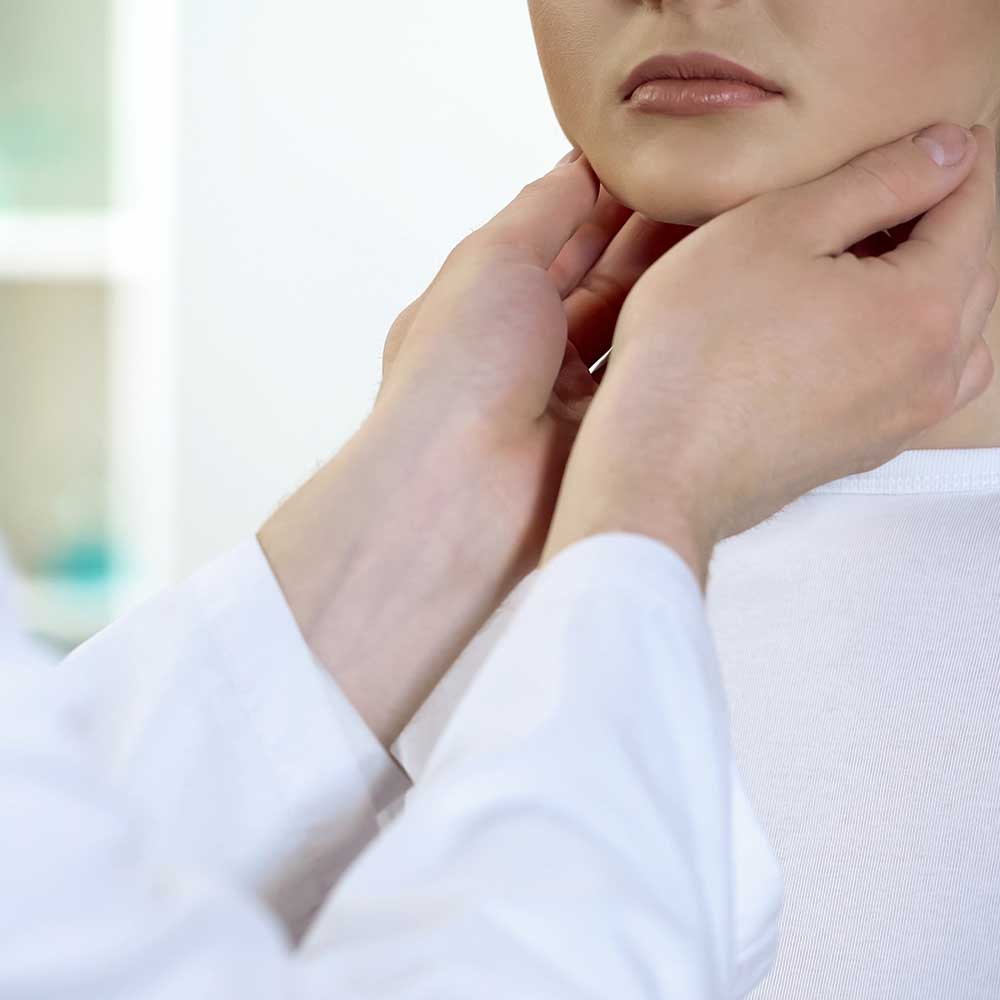Ultrasound Guided Fine Needle Aspiration (FNA) Biopsies

Preparing for The Procedure
Most medications can be continued. However, anticoagulants, also called “blood thinners”, often need to be stopped temporarily in anticipation of your thyroid biopsy. These medications can increase the risk of bleeding. Generally you will not be required to be fasting the day of the appointment. During the biopsy, ultrasound gel will be applied to the neck to obtain images. The gel is water soluble and non-toxic, but may get on clothing or jewelry. You may wish to wear comfortable clothing and take off any jewelry from around the neck for the procedure.
The Procedure
• A fine needle aspiration (FNA) biopsy is a diagnostic procedure used to evaluate thyroid nodules or lymph nodes in the neck to check for cancer. This is a simple and safe procedure performed in the office.
• You will be asked to lie down on your back with head tipped backwards, so that your neck is extended. Sometimes a pillow is placed under your shoulders to help you get in the best position for the biopsy. During the procedure you may feel some neck pressure from the ultrasound probe and from the needle. You will be asked to remain as still as possible and avoid coughing, talking and swallowing during the biopsy.
• The neck will first be cleaned with an antiseptic. A topical anesthetic may be used. For the FNA biopsy, a very thin needle is inserted through the skin and into the nodule. After sampling which only takes several seconds, the needle is removed. New needles are used for additional samples. Several samples of cells will be obtained by sticking a fine needle in various parts of the nodule usually between two and six times. The biopsy is performed under ultrasound guidance to ensure accurate placement of the needle within the nodule.
• Once the biopsy is completed, pressure will be applied to the neck. The procedure usually lasts less than 30 minutes.
What to Expect After The Procedure
• The procedure is usually performed using a local anesthetic or no anesthetic and no medications are used that affect your consciousness or thinking. After the procedure you may be asked to sit up slowly to prevent you from getting lightheaded. Most patients typically leave feeling well. There are very few, if any, restrictions on what you can do after a thyroid biopsy. Because of this, it is not generally necessary to bring a companion to help or drive you home.
• Some neck discomfort at the site of the biopsy is expected following the procedure. Tylenol and ice compresses can be used to relieve discomfort.
Receiving FNA Diagnosing from Accent Endocrinology
At Accent Endocrinology, we understand that the faster and more accurately diagnosing occurs, the quicker the treatment plans are made and you can get back to your life. This is where ultrasound technology comes into play.
Our experienced endocrinologists use ultrasound to pinpoint the exact areas of concern and determine when and if FNA biopsy is needed. Ultrasound helps to guide FNA biopsy to retrieve cells for evaluation accurately in office without surgery or downtime.
During your FNA biopsy procedure, the sample will be studied on-site at our Gainesville Thyroid Center to determine if the sample is adequate for evaluation. A team of Thyroid Cytologists will then examine the sample with results typically available within two weeks to help your Accent Endocrinologist determine your best treatment strategy.
